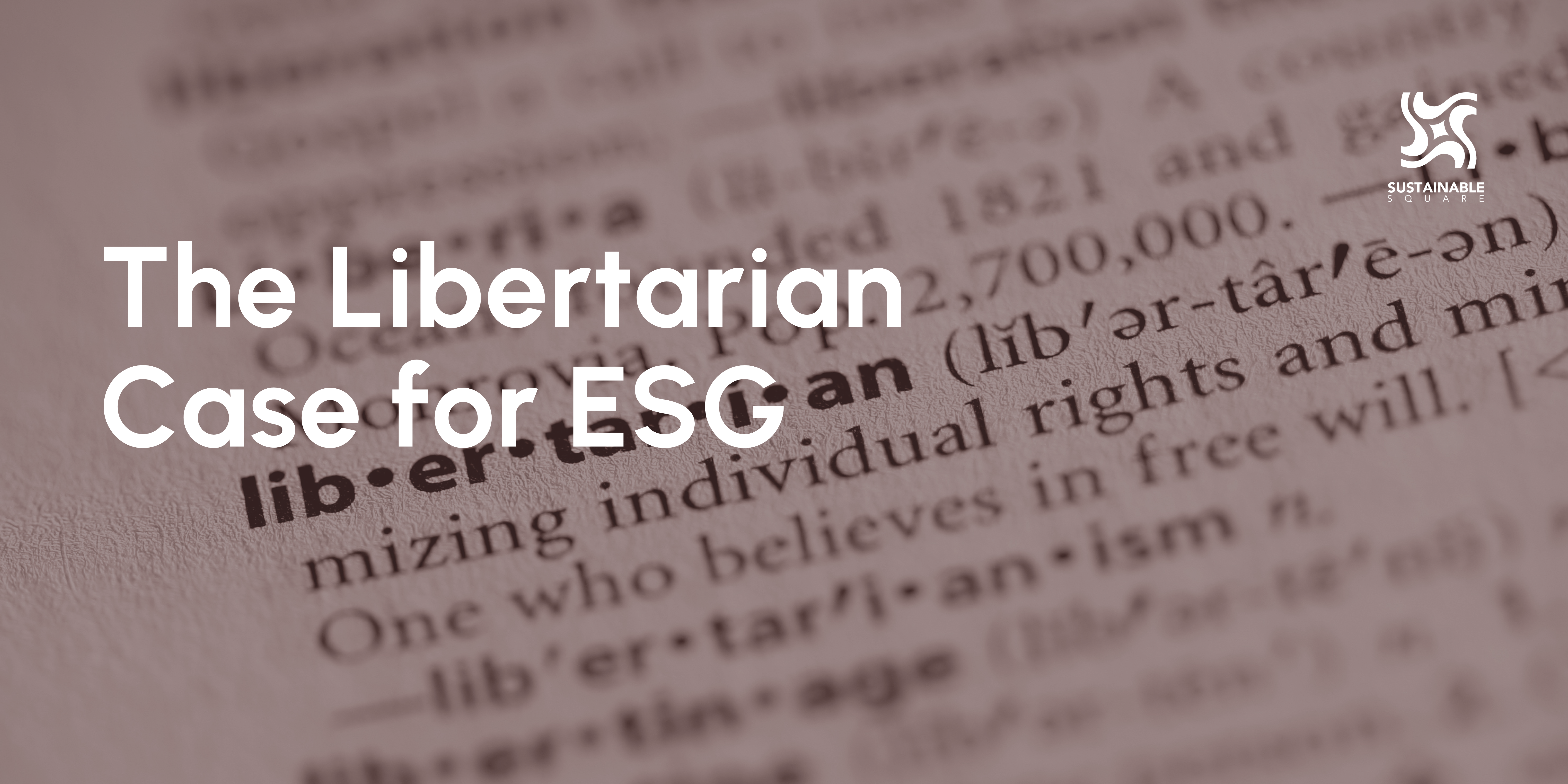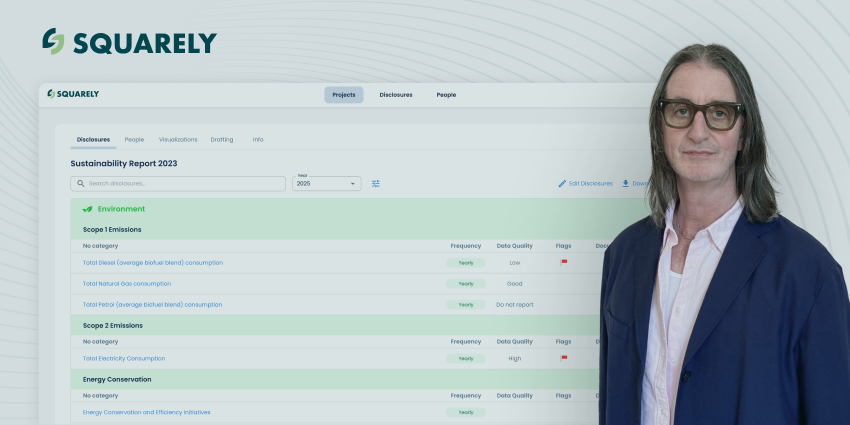The Libertarian Case for ESG
Rather than being a tool of social engineering, ESG can be seen as a framework for empowering consumers, investors, and businesses to make enlightened decisions, thereby driving competition and fostering a thriving market environment.
Environmental, Social, and Governance (ESG) disclosure frameworks have steadily garnered recognition within investment circles. These criteria evaluate a company’s commitment and approach to various pressing issues such as climate change, human rights, and corporate transparency. Libertarians, traditionally inclined towards free markets and limited government intervention, often view the rise of ESG with scepticism. However, this article argues that ESG should not only pique libertarian interests but also garner their active support. ESG presents a market-driven pathway towards sustainability that aligns with libertarian values, sidestepping the need for stringent government regulation.
Dispelling Misperceptions: Libertarian Values and ESG
A prevailing misconception among critics brands ESG as ‘woke capitalism’, a perceived form of social engineering infringing upon economic freedom. From a libertarian viewpoint, the association of ESG with such a label might seem disconcerting, as it appears to conflict with the fundamental libertarian principles of unrestricted markets and minimized government intervention. However, this understanding is skewed and fails to capture the inherent potential of ESG to advance these very principles. Rather than being a tool of social engineering, ESG can be seen as a framework for empowering consumers, investors, and businesses to make enlightened decisions, thereby driving competition and fostering a thriving market environment. The critique of ESG as ‘woke capitalism’ misconstrues its true function and overlooks its compatibility with libertarian values.
ESG’s Role in Market Transparency and Efficiency
ESG criteria offer an extended, more nuanced view of a company’s health and prospects, going beyond conventional financial indicators. This detailed insight into a company’s performance, potential risks, and opportunities facilitates sounder investment decisions. By equipping consumers and stakeholders with crucial information, ESG promotes corporate accountability, thus enhancing market transparency, efficiency, and competitiveness.
ESG: Championing Market-Driven Sustainability
In stark contrast to prescriptive government-imposed regulations, ESG presents a market-oriented route to sustainable practices. It respects the autonomy of every company, investor, and consumer, fostering an environment conducive to discovering and implementing best practices across different industries and sectors. By promoting continuous improvement through feedback and incentives, ESG upholds the market’s freedom, diversity, and creative capacity.
Bridging Market and Societal Interests with ESG
ESG brings the long-term interests of the market in alignment with the broader concerns of humanity and our planet. It understands the market as a component of a larger, interconnected system, whose well-being hinges on the health of its natural and social environment. By proactively responding to future opportunities and challenges, ESG bolsters the market’s sustainability, resilience, and relevance.
ISO Standards: A Demonstrative Example of ESG’s Approach
The International Organization for Standardization (ISO) provides a tangible demonstration of ESG’s practicality. ISO, a set of standards driven by market needs and voluntarily adopted, guides companies in enhancing their quality, safety, and environmental performance. The consensus-based structure of ISO, coupled with its flexibility and adaptability, underscores the advantages of a voluntary, market-based standard akin to ESG.
Conclusion
The narrative that ESG criteria and libertarian values are antithetical is fundamentally flawed. ESG, in fact, can serve as a potent tool to further libertarian ideals. By enabling consumers, investors, and businesses to make informed choices, it nurtures competition, a cornerstone of libertarian philosophy. By serving as a market-driven alternative to government regulations, ESG offers a promising avenue to enhance the market system for the benefit of all stakeholders.


